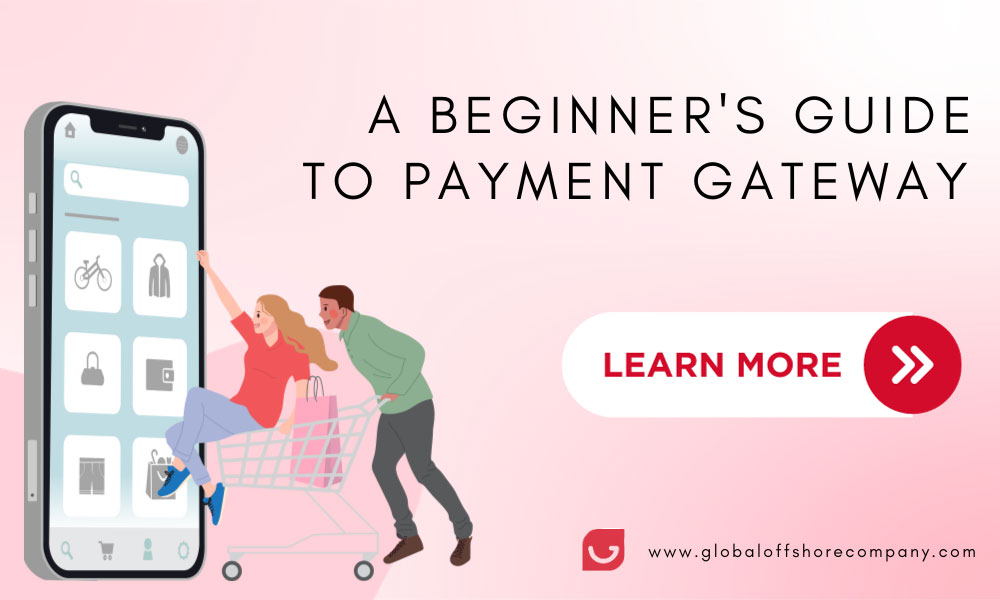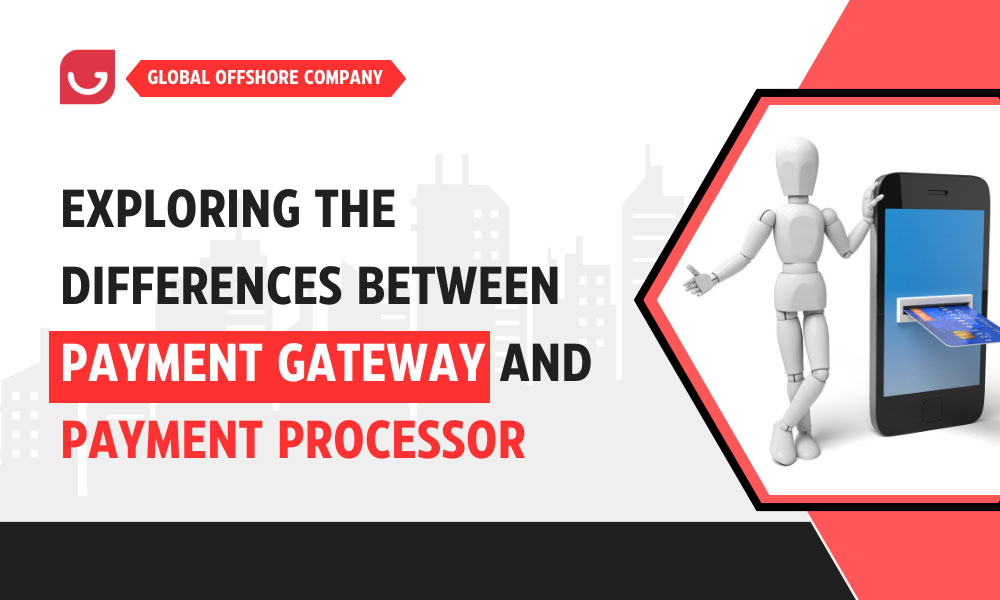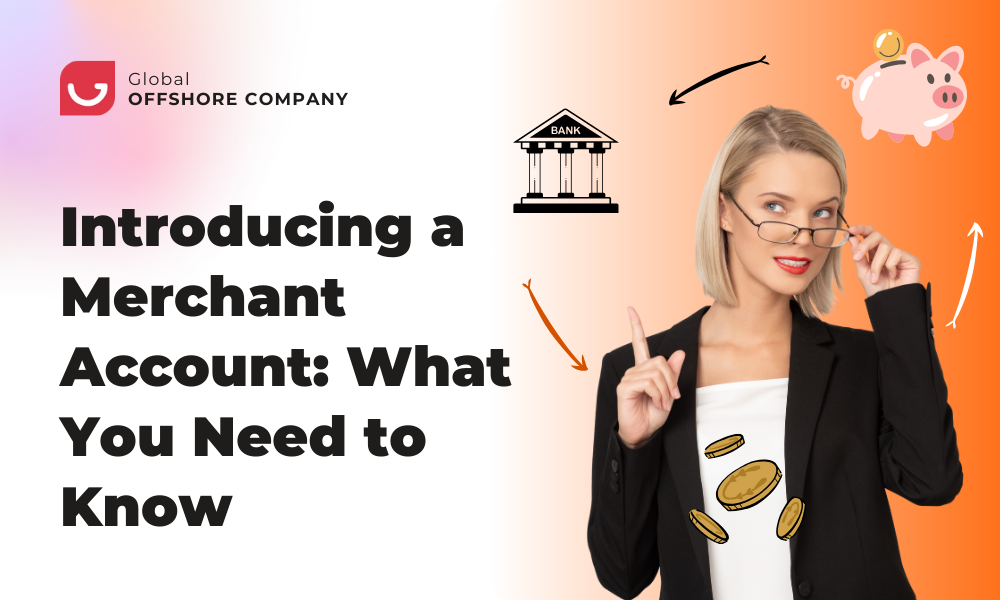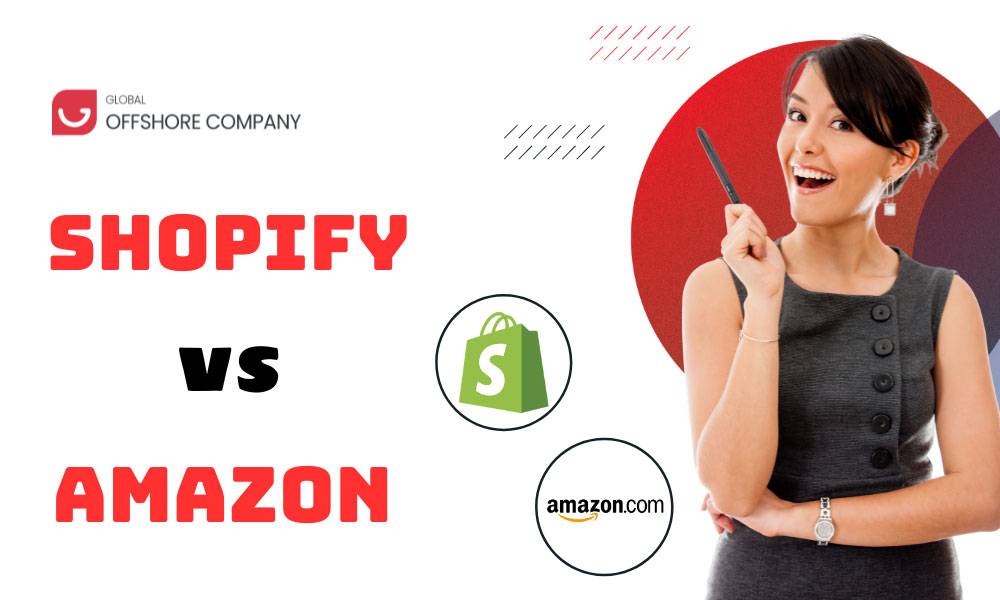Exploring the Differences Between Payment Gateway and Payment Processor
Payment gateways and payment processors are sometimes used interchangeably, but both are different and vital components of receiving credit card payments, particularly online. In brief, payment gateways validate card information first. Payment processors then finish the transaction by transferring the card details to the bank or card network.
Definition of payment gateway:
A payment gateway is a technology that securely delivers online payment data to the processor to continue the transaction's lifecycle. It also permits card-not-present purchases, primarily for e-commerce websites. Consider it an online point-of-sale terminal for your company.
The distinction is that a payment processor implements the transaction, whereas a payment gateway is a technology that communicates transaction acceptance or refusal between you and your consumers.
When To Use a Payment Gateway
If you want to go into e-commerce, you'll need to utilize a payment gateway. In a virtual situation, payment gateways are your sole choice for validating the authenticity of a credit card. Without them, you risk being duped by consumers who provide false information or do not have enough money in their accounts to pay their transactions.
Here are several scenarios in which employing a payment gateway makes sense:
- You're launching an internet store.
- You're taking payments over the phone without having an actual credit card on hand.
- You want to accept payments in person but don't want to invest in a full POS system.
Definition of Payment processor:
A payment processor accepts credit card payments by sending card data from a merchant's POS system to the card networks or banks involved in the transaction. Payment processors are necessary for a firm to accept credit card transactions and levy fees that are typically determined as a percentage of each transaction handled. Payment processing is included in certain POS systems, such as Square's. Many payment gateway providers also provide payment processing services, allowing the services to be bundled.
When To Use a Payment Processor
If they want to take credit card or ACH payments, all businesses, whether online or offline, will most certainly require some kind of payment processor. Here are several scenarios in which employing a payment processor is advantageous:
- You have a physical store as well as an e-commerce website.
- You run a traveling pop-up shop.
- You have your own storefront where you may set up a permanent POS system.
A comparison of payment gateways and payment processors
A payment gateway receives and validates credit card information from customers and is essential for online payments. It verifies that all of the data are right so that the sale can be sent to the payment processor.
A payment processor is the service that facilitates communication between the merchant, credit card firm, and banks. It handles the transfer of funds so that you are paid for your sale.
You couldn't complete online sales without a payment gateway, money processors, on the other hand, are as important; without them, you couldn't request or receive money from the customer's account.
Here's how the two services compare:
| Payment Gateway | Payment Processor |
|---|---|
| Transports the transaction process (accepts or refuses) between the customer and your company. |
Distributes data entered by clients to the proper parties: the consumer, your company, the receiving bank, and the acquiring bank. |
| Can be integrated into your accounting software or online store, allowing you to handle credit cards without having to deploy other solutions. | May set up merchant accounts so that your company may take credit card payments. |
|
Is utilized to accept online payments. |
Is the company that delivers point-of-sale terminals to your company. |
| Checks the validity of credit card information entered on a merchant's website. | Manages all aspects of credit or debit card payments. |
| Transactions may be authorized and processed. | Transactions can be processed, although they are typically not authorized. |
| In-person card transactions are not necessary. | It is necessary to perform both in-person and online credit card transactions. |
| Collects, encrypts, and validates payment card information from internet customers. | Transfers funds via communicating with the merchant, issuing bank, and acquiring bank. |
| Checks the card's validity by acting as an online point-of-sale (POS) terminal. | Acts as a physical point-of-sale (POS) terminal to ensure the card's validity. |
| Intermediary between a company and a client | Intermediary between the company, the customer's bank, and the merchant's bank |
| It must be used in tandem with a payment processor. | It is possible to utilize it as a stand-alone service. |
| E-commerce or card-not-present purchases are ideal. | Ideal for POS and in-person transactions |
A payment gateway, a processor, or both?
Anyone trying to sell online will require both. The sort of business you run and how you wish to take payments determine whether you need a separate payment gateway and payment processor.
Here are some samples of what you would require for your business type:
- Online business: If you run an ecommerce website and wish to securely take credit card payments over the internet, a payment gateway and payment processor are required.
- Service companies: You are a service company who accepts payments both online and in person and wants to consolidate payment processing onto one platform using a payment gateway.
- Brick-and-mortar: If you have a physical shop and wish to take credit card payments at the point of sale, you'll need a payment processor to link with a permanent POS system.
- Non-profit organizations: if you are collecting donations through your website, you will need a payment gateway to securely take contributions and a payment processor to connect with the acquirer.
Where to find a payment processor or gateway?
You’ll need to be careful when choosing the products that facilitate your business. Payment gateways and payment processors both play an important role in your business and have a few factors that determine their value to your business. To begin, ensure that you understand your fundamental setup requirements. Then shop strategically.
The fundamental requirements for setup
To take credit and debit cards, you must first have a location where the payments may be received. You may obtain it by creating your own merchant account, which is a specific sort of bank account used to accept card payments, or by utilizing a payment service provider that allows you to utilize their merchant account.
Following that, you'll need to engage a payment processor to undertake the labor of processing your credit card transactions through the banking system so you can be paid.
Then you'll need a mechanism to accept card payments from consumers. If you sell in person, you'll need a cash register or point-of-sale system with a card reader so customers can pay you. If you sell online, you'll need a payment gateway so customers can input their credit card information and pay you.

1.If you chose payment gateway
Choose between a third-party payment gateway and a native payment gateway. Your e-commerce website builder may already have one, or you may need to discover one that interfaces with your website on your own.
Check with your existing providers to see what you may obtain as a package. Many payment gateway providers, for example, provide merchant accounts, which may result in quicker setup and reduced expenses.
Keep in mind that payment processing fees are frequently a percentage of the transaction plus a flat price each transaction. Shop around since providers sometimes provide discounts to firms that bring them a significant number of transactions.
Think about if you wish to accept foreign payments. Most gateways and processors accept major card brands and networks without issue, however they may have limits on international credit cards and other currencies.
2.If you chose payment processors
Here are some things to check for when selecting a payment processor:
The payment processor's cost — The cost is important. Typically, the higher the price, the higher the quality of the goods. However, before making a selection, conduct your study and consider the other considerations.
Payment options — Having different payment options is incredibly advantageous for your organization. Check to see if your payment processor supports all types of credit cards, including contactless, magstripe, and chip-and-PIN.
The degree of security – When looking for a payment processor, look for one with a high level of security. This will guarantee that transactions go smoothly and there is no fraud.
Risks that you want to avoid:
There are certain drawbacks to using an external payment processor instead of a payment gateway and processor combined. This is because doing so exposes your organization to fourth-party risks in addition to the third-party risks that come with interacting with any provider.
These risks include third-party integration hazards as well as potential flexibility issues with your payment platform. Choosing a payment processor that is separate from your acquirer and payment gateway may make modifications more difficult to implement.
There is, however, a simple solution: if you pick an end-to-end solution in which your acquirer, payment gateway, and payment processor are all provided by the same vendor, you eliminate any concerns about third-party vendors. This is an important factor to consider when deciding between a payment gateway and a payment processor.
Conclusion
If you want to find out more about e-commerce information and ideas, follow us for more. Wanna open an ecommerce business immediately, contact us now.
Disclaimer: While Global Offshore Company (G.O.C) endeavors to provide timely and accurate information on this website, the content is intended for reference purposes only. The information presented in this article should not be considered a replacement for qualified legal advice. For personalized guidance on your specific circumstances, we encourage you to reach out to G.O.C's experienced consultants.










